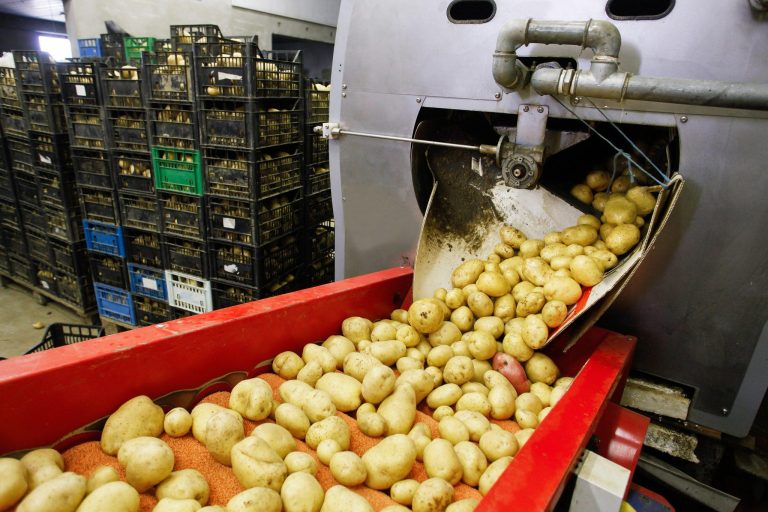4 Benefits of Electrocoagulation for Beverage & Food Wastewater Treatment

With a global population of over seven billion people, there are hundreds, if not thousands, of companies in the world that produce the food and beverages that are needed to meet this global demand. These companies require massive amounts of water to produce their products, and those products result in equal amounts of wastewater. It’s simple enough to just discharge the wastewater into a nearby stream or surface water source and be finished with it. However, with constantly changing environmental regulations and pressure to be more environmentally conscious, food and beverage companies face increasing requirements of beverage and food wastewater treatment.
Implementing or retrofitting a wastewater treatment system seems to be the obvious solution. However, it can be difficult to determine the appropriate treatment for a particular application. Especially a treatment solution that has a lower lifecycle cost and is sustainable.
One such treatment technology is specialized electrocoagulation (EC), an electrochemical process often used in primary treatment to reduce a number of wastewater constituents. This system solution is primarily used as part of an integrated food wastewater treatment system or beverage wastewater treatment system for food & beverage companies worldwide.
To illustrate the value of this technology, below are four benefits of electrocoagulation for food wastewater treatment and beverage wastewater treatment applications.
Reduced Raw Water Consumption
As mentioned earlier, food and beverage companies use large volumes of water in their production processes. From ingredients to cleaning to boiling and chilling, water is perhaps the most used resource in food and beverage production. However, due to growing awareness of water scarcity in many parts of the world, reducing consuption of raw water is highly encouraged.
The best ways to decrease the use of fresh water resources would be to either use less water to begin with, or to reuse treated wash water or wastewater. It can be difficult in many cases to reduce usage. However, it is certainly almost always possible to reuse wash water or wastewater, after proper food wastewater treatment or beverage wastewater treatment.
Treatment for reuse can be costly with some treatment methods, but this isn’t an issue with EC. Electrocoagulation units themselves have a lower lifecycle cost and don’t require expensive additives or equipment.
If properly optimized, they are highly efficient. An EC process, followed by a sufficient polishing filtration and disinfection system can provide enough clean water to use as a process ingredient.
For less expensive reuse opportunities, wastewater can be filtered and disinfected enough to be used in applications that don’t require high quality water, like cleaning machines. Therefore, with the use of EC, raw water consumption could be reduced down to only the volumes required for ingredient purposes.
Reduced Disposal Costs
One of the biggest headaches with wastewater is disposal. How to get rid of it and how much it will cost are the typical questions. There are costs associated with any special transportation required (if any), but the biggest costs derive from fines. Because of the increased emphasis on and enforcement of environmental regulations, fines for discharging wastewater back into the ecosystem can be staggering. Wastewater can also be sent elsewhere to be disposed of safely, but that option has its own costs to consider as well.
By utilizing a system for food wastewater treatment, those disposal costs can be greatly reduced. Use of an Electrocoagulation system on site as part of a treatment process can reduce contaminants to such a level that a company may not need to pay any regulatory fines for discharge to a sanitary sewer. Dewatered solid wastes remaining from this treatment are minimized by using EC, so transportation costs and safe disposal costs can also be reduced significantly as well.
Ease of Operation
Some water treatment systems are complex to use, maintain and require several highly skilled operators to use them. An EC system on the other hand, is simple to operate. The only typical adjustments that would be needed would be to adjust voltage being applied to the electrodes and the pH of the solution. Using some Electrocoagulation systems, automation does the work.
Cleaning mainly consists of washing/rinsing the electrodes with an acid solution to prevent rusting. Basically, a good EC system really only requires minimal staff to monitor the system and replace the sacrificial electrodes, when they have corroded past their economic potential.
Environmentally Friendly
Most wastewater treatment systems could be considered environmentally friendly due to the fact that they can be used to prevent environmental water pollution. However, some solutions require the use of harmful chemicals, or simply large amounts of chemicals that end up producing lots of solid waste after treatment.
EC typically only uses chemicals for pH adjustment, which can be easily neutralized, if not naturally neutralized in the process itself. This systems also produces smaller quantities of solid waste and often that waste can be reused elsewhere.
Electrocoagulation has many benefits, but the four main points listed above encompass several of the primary benefits. EC has a lower lifecycle cost, is easy to operate, and is an environmentally friendly treatment system that has great potential for use in beverage & food wastewater treatment applications in the food & beverage industry.
Genesis Water Technologies, Inc. has implemented these systems with several clients in this sector to great success. Those clients were able to reduce their raw water consumption and lower their operating and disposal costs significantly using this innovative and advanced treatment technology as part of an integrated beverage or food wastewater treatment plant solution.
If you are in the food and beverage industry and are interested in the benefits that an electrocoagulation system could provide for your wash water or wastewater treatment requirements, call Genesis Water Technologies, Inc. at 1-877-267-3699 for a free consultation. You can alternatively email us at customersupport@genesiswatertech.com with your application details and treatment goals to discuss accordingly.

